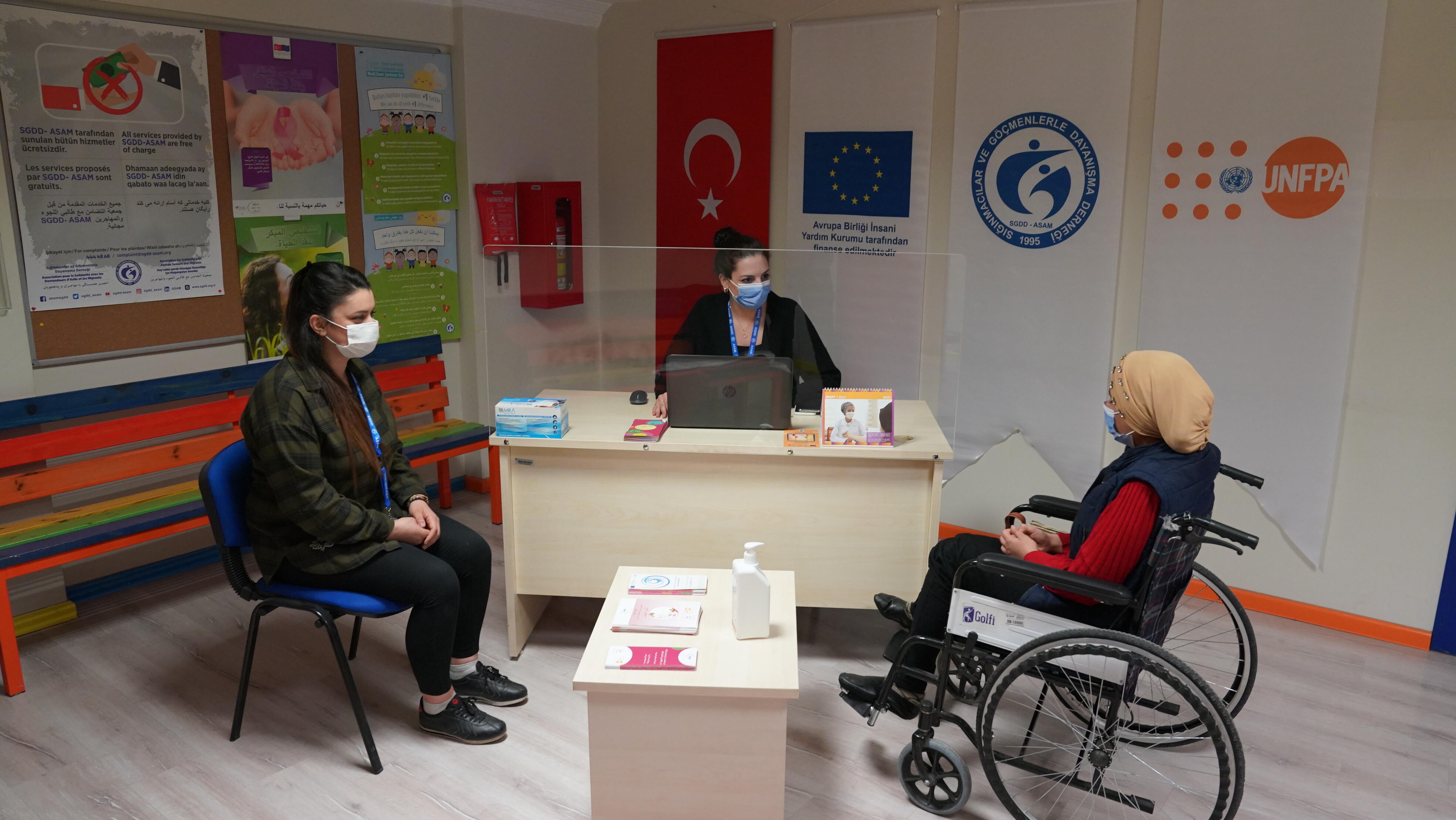In Turkey, 450,000 refugees live with disabilities. Many of them don’t have enough information about available services or cannot access them. The United Nations Population Fund, UNFPA Turkey and the Association for Solidarity with Asylum Seekers and Migrants (SGDD-ASAM) have launched a new project to increase the access of refugees with disabilities and their support persons to protection services. The project is funded by European Union Humanitarian Aid.
ANKARA – Turkey is currently hosting the largest number of refugees globally with close to 4 million. 3.6 million of them Syrians under temporary protection. Despite the joint efforts of Turkey and national and international organizations, the ongoing migration movement, rapid population growth, the COVID-19 pandemic and the pressure on national resources makes it difficult to respond to the hardships experienced by refugees and migrants.
According to the research conducted by the United Nations Organization for Migration (IOM) in 2017, 1 in every 10 refugee households has a member with disabilities (12.4%). Disability makes refugees more vulnerable in many areas such as employment, or accessing education and health services, and might lead to psychological social problems due to low self-esteem and feeling excluded from society. The research carried out in 2020 by UNFPA, TESEV, KONDA in İzmir and Ankara also shows that psychosocial problems such as anxiety or depression are prevalent among refugees with disabilities.
According to UNFPA Turkey’s research, refugees with disabilities are often in need of health support. Half of them need surgery and specific medication, and one-third need prosthetics and orthopaedic devices. However, more than half of the refugees with disabilities who participated in the survey reported difficulties in accessing healthcare services due to transportation challenges, financial hardships and language barriers. The research also reveals that financial constraints, language barriers, physical inaccessibility of buildings and public areas and long waiting times at public services, government offices and transportation constitute the main challenges for refugees with disabilities and their support persons to access protection services. Another important finding of the study is that women and girls with disabilities are at high risk of gender-based violence (GBV), sexual abuse, risk of exposure to HIV and other sexually transmitted infections.
The “Increasing Access of Refugees with Disabilities to Protection Services in Turkey Project” implemented by UNFPA in partnership with SGDD-ASAM with the financial support of European Union Humanitarian Aid, aims to contribute to the solution of these problems. In the scope of the project, refugees and migrants living with disabilities, as well as their support persons are provided with protection services including consultations, information, psycho-social support, gender-based violence prevention and response services, as well as referral and support in accessing other services through two service units in Ankara and İzmir. The access of the beneficiaries to these specialized service units and other services will be supported via disabled-friendly vehicles.
The service units also work in close collaboration with other service units of the Ministry of Health, municipalities and UNFPA to meet the health and reproductive health needs of women and girls with disabilities.


